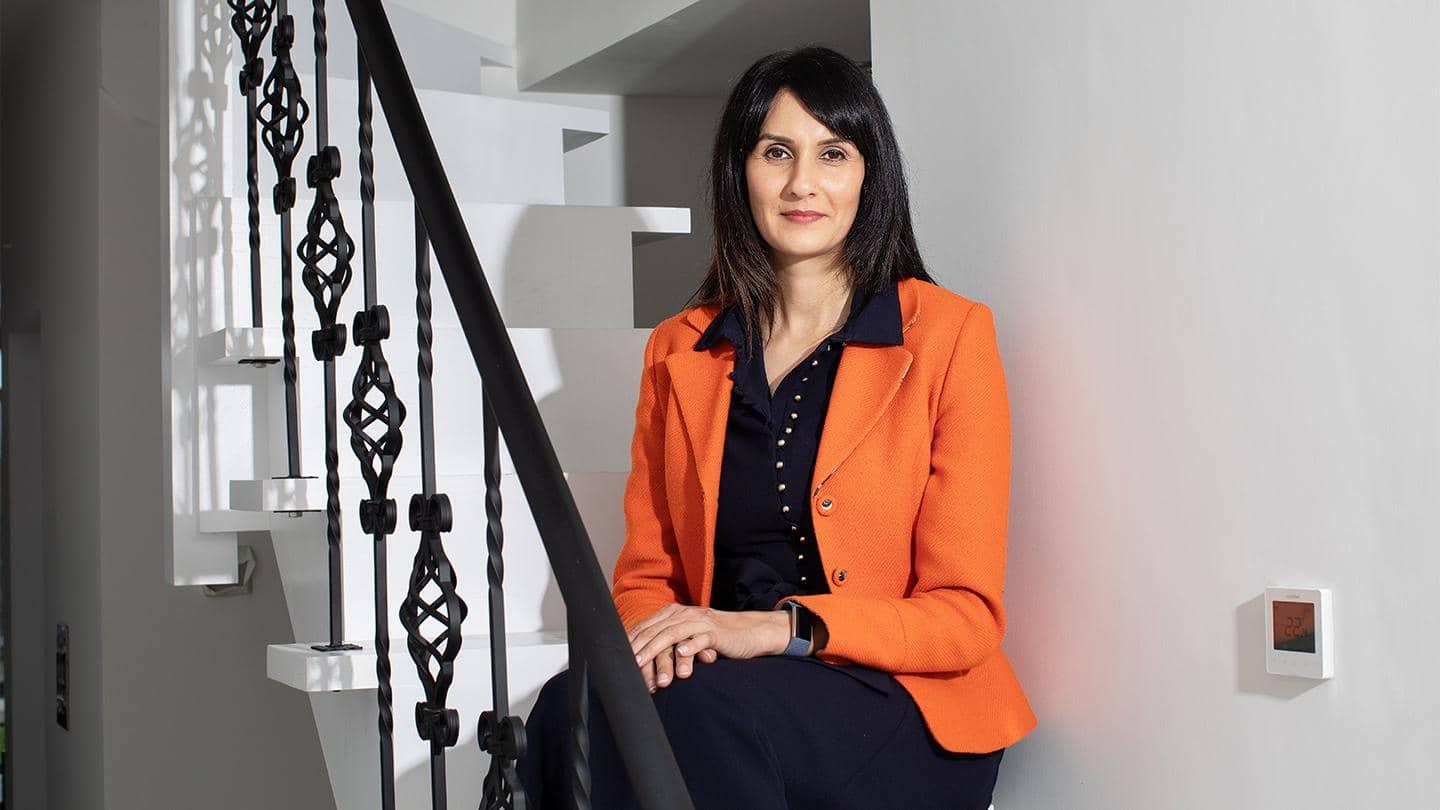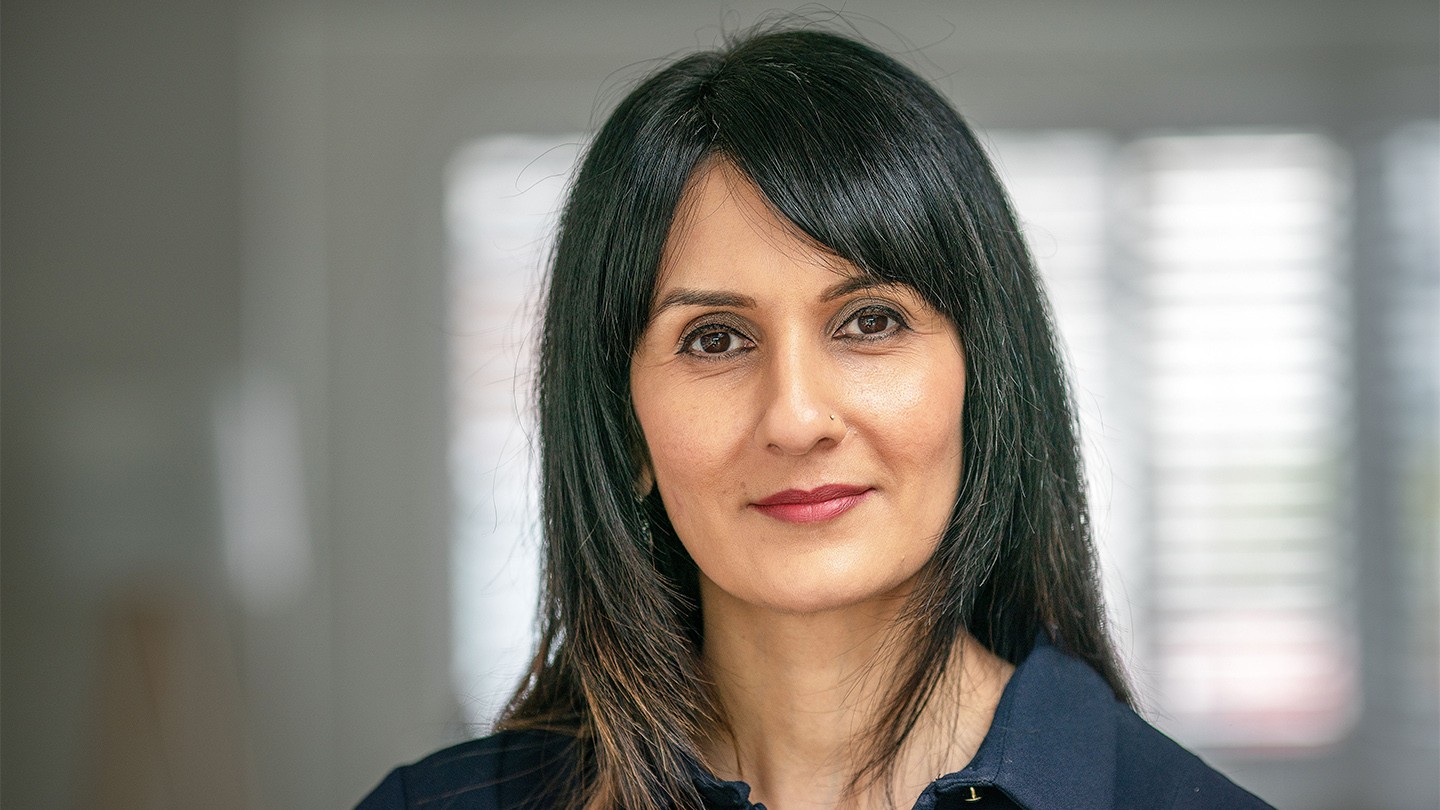
Culture
“Working from home shouldn’t mean you put your career on hold”
How do you support and develop your team when everyone’s working from home? Nazreen Visram, Head of Charities at Barclays, shares her thoughts on maintaining a supportive and inclusive culture while working remotely – and the importance of offering colleagues ways to feel ‘seen’.
Nazreen Visram, Head of Charities at Barclays, finally sent her 12-year old son back to school this term after six long months.
“I feel I ought to dance around the room,” she says. “Of course, I won’t. But I’m so excited for him. Home schooling was tough, and every day was a new challenge. As well as my job, where I was helping my team and charities to navigate many challenges, I was a geography teacher, IT support, a chef and a cleaner.”
Along with many of Barclays’ employees, Nazreen switched to working from home back in March, meaning that she has been physically remote from the team she manages for half a year. This situation looks set to continue now that the government has asked employees to work from home again where possible.
The challenges of remote managing
One of her priorities has been ensuring that members of her team continue to develop their skills and prospects – not easy for line managers who no longer work face-to-face with those they manage.
She describes having to find new strategies to ensure that colleagues aren’t putting their careers on hold – a particular issue for women in the workplace, who have been disproportionately impacted by the pandemic.
We have got to adapt and think differently about how we communicate and continue to learn and grow. Barclays continues to create opportunities for those who want to develop their careers
Head of Charities at Barclays

Nazreen Visram, Head of Charities at Barclays, says remote working shouldn’t be a barrier to career progression.
“It’s been really difficult to manage people in this environment and still develop them,” she says. “This is underpinned by the importance of their wellbeing which has been a key priority for me.”
She continues: “Delegation is important – I am asking some of my team to lead on projects so that they are out of their comfort zones. That’s about giving them visibility, responsibility and opportunity.
“As an introvert this must be a real struggle, but it comes with confidence and practice. If I’m developing my team, I might ask someone introverted to lead or chair, as it gives them a voice and a means of being present.”
Nazreen is adamant that remote working should be no barrier to career progression – but adds that it is important to understand the need for new skills, from learning to be ‘present’ on a video call to considering your online presentation and networking skills.
“We are going to be working like this for some time, but that shouldn’t mean you put your career on hold. We have got to adapt and think differently about how we communicate and continue to learn and grow. Barclays continues to create opportunities for those who want to develop their careers.”
She has been impressed by the range of online resources the bank has provided for colleagues, including an online careers week, mentoring programmes and virtual coffee mornings that help colleagues connect while working remotely. “People are having great development conversations online,” Nazreen explains. “It’s actually easier to set up as people are more accessible in a way when it’s all online.”
“As an employer we have a responsibility”
As Co-Chair of Barclays internal diversity initiative, Embrace, Nazreen is also passionate about building a diverse and inclusive working environment at the bank.
“I’m an Asian woman, a Muslim, and my faith is really important to me,” she says. “And I’m a mum. I bring all of that to the workplace with me, whether virtually or physically. It is all part of who I am.”

While that glass ceiling exists for women, it’s thicker when you are from an ethnic minority background. People often judge you before you even open your mouth
Head of Charities at Barclays
She has delivered employability skills workshops at local schools and mentored other colleagues – efforts which were recognised earlier this year when she made the EMpower Ethnic Minority Role Model List for the third year in a row.
“While that glass ceiling exists for women, it’s thicker when you are from an ethnic minority background. People often judge you before you even open your mouth,” she says.
“When I used to manage clients, I went to meetings where a male client initially assumed I was the assistant, not the boss. Muslim women are among the most negatively perceived in the media. But there are so many amazing Muslim women who are successful and positive role models and it’s really important to recognise that and bring that out, so that we challenge negative stereotypes.”
A supportive working environment has been essential – particularly as many of the challenges faced by colleagues have been both exacerbated and highlighted in the past year.
“There has been sadness. People have lost loved ones, then we’ve had the Black Lives Matter movement. It has been a really tough year for colleagues of black heritage particularly. They’ve had a lot to grapple with.”
Nazreen says Barclays’ celebration of Black History Month this October, much of it online by necessity, has been an opportunity to “learn and develop” and hear “other people’s stories”.
She also cites the bank’s reverse mentoring scheme, where younger black colleagues share their experiences of micro-aggressions and other incidents with senior white leaders, as an example of an initiative helping to improve diversity and inclusion.
“It breaks down barriers and increases awareness,” she explains. “It educates and helps leaders to understand what their role is in creating a level playing field.
“As an employer we have a responsibility. The more diverse we become as a management team and the more we break down barriers, the more we encourage diversity of thought and represent the clients, customers and communities we serve.”
Feeling ‘seen’
Nazreen is open about the fact that female colleagues face their own anxieties about their careers in the absence of a physical office environment.
“Everyone has responded to this pandemic in their own unique way,” she says. “We’ve all had good days and bad days. The more supportive we can be as leaders and the more vulnerability we show, the more it adds to a culture of wellbeing.
“As a woman, I’ve had a real sense of paranoia about, ‘Can my boss see what I’m doing’?” she says. “In the office, what you do is obvious. In the virtual world, it’s hard to make yourself visible in an authentic way – you don’t want to be that person saying, ‘Look how great I am’.”
She says that if she were to go back to the start of lockdown again, knowing what she does now, she would approach things differently.
“Hopefully I would manage my time better – that has been my biggest challenge. I’d watch myself on video and work on my voice. When it comes to video meetings your voice is your biggest tool.
“But also I wouldn’t be so hard on myself. I would say it’s okay to get things wrong, as long as we learn from them. We are all facing a multitude of challenges and dealing with them in our own unique way.”